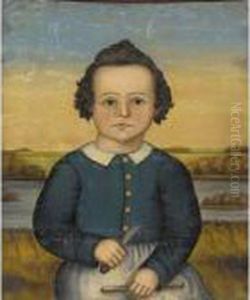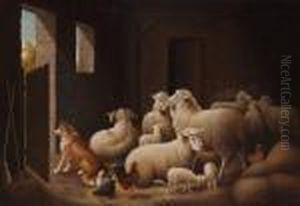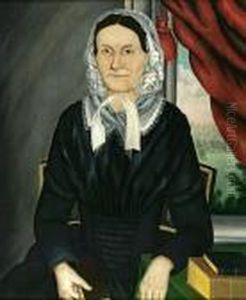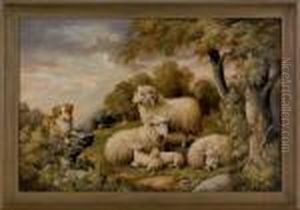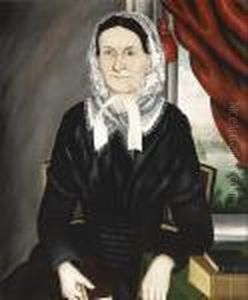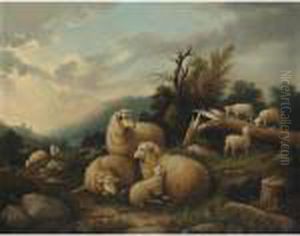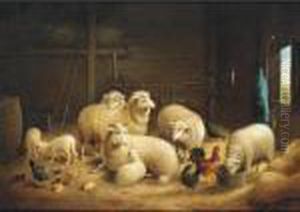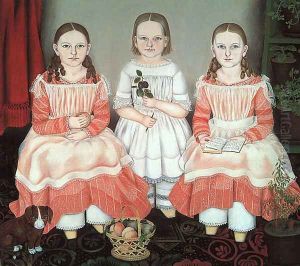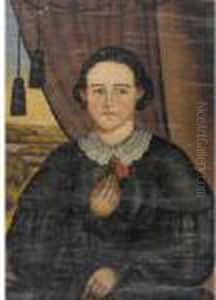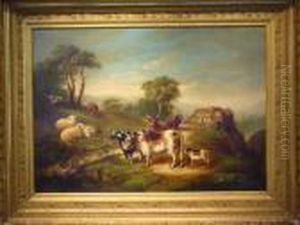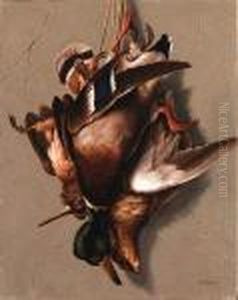Susan C. Waters Paintings
Susan Catherine Moore Waters was an American painter primarily known for her portraits and animal paintings, especially those featuring domestic animals. She was born on May 18, 1823, in Binghamton, New York. Waters was largely self-taught, although she briefly attended the Clinton Liberal Institute in Clinton, New York. Her early works were portraits done in a folk art style, reflecting the limited access to formal artistic training that was common for women of her time.
In 1841, she married William Waters, who was supportive of her artistic career. The couple moved several times, living in various places including Bordentown, New Jersey, and Pennsylvania. Throughout her travels, Susan Waters continued to paint and began to gain recognition for her work. She exhibited her paintings at the American Art-Union in New York and later at the Pennsylvania Academy of the Fine Arts.
One of Susan Waters' most famous works is the painting 'Sheep in the Meadow' (1858), which exemplifies her detailed and realistic portrayal of animals in pastoral settings. Her animal paintings are noted for their sense of peacefulness and the gentle representation of the subjects.
As her career progressed, Waters became involved in social causes, particularly the temperance movement and women's suffrage. Her dedication to these causes was also reflected in her choice of subjects, as she often depicted strong, independent women and themes of domestic virtue.
Susan C. Waters' contribution to American art is significant not only for the quality of her work but also for her role as a woman artist in the 19th century. She managed to forge a successful career despite the societal limitations of her time. Her works are now part of the collections of various museums, including the National Gallery of Art and the Smithsonian American Art Museum.
Waters passed away on July 23, 1900, in Bordentown, New Jersey. Her legacy continues to inspire and her life is a testament to the possibilities for women artists in the face of adversity.
